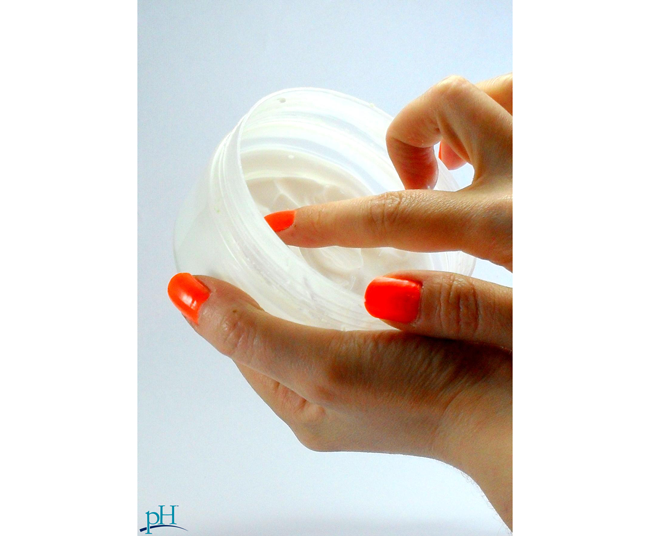Why are bioidentical hormones controversial?
10 years ago | Hormones
By pH health care professionals
Have you ever taken female hormones to regulate your menstrual cycle or to improve your mood or energy? While synthetic hormones (made in a lab) have long been available as prescription medications, pharmacists have also created “bioidentical” hormones for decades.
What are bioidentical hormones?
Bioidentical hormones are derived from plant extracts, such as soy or yams. They are modified so that their molecular structure is identical to the hormones your body produces. These hormones may include estrogens (such as estradiol, estriol or estrone) or progesterone -- hormones that can be tested for in human blood. People typically get bioidentical hormones from compounding (i.e., customizing) pharmacies. They might be in oral or topical form (such as a vaginal gel or skin cream).
In contrast, prescription drug hormones contain slight changes in molecular structure. This allows them to be patented and sold by pharmaceutical companies at a higher cost than bioidentical hormones.
Bioidentical hormones are typically used to address a hormonal imbalance. Periodic blood draws or saliva tests may help the pharmacy or doctor fine-tune the patient’s hormone levels.
So why are bioidentical hormones controversial?
Some people have touted them as a “fountain of youth.” However, because these hormones haven’t been tested in large clinical trials, what we have are anecdotal reports of individual women instead of statistically confirmed improvements in symptoms like hot flashes or depression. Most endocrinologists and gynecologists do not routinely recommend or prescribe these hormones, as a result.
One study found that a bioidentical preparation produced lower levels of estrogen, and that the estrogen level was more variable and unpredictable than with a regular prescription dose. But it is also important to remember that estrogen is estrogen, and taking extra estrogen does raise the risk of cancer.
Right now, other than the theoretical benefit of taking hormones that are more structurally similar to your own hormones, there appears to be no definite justification for taking them instead of prescription hormones. Some FDA-approved prescription hormones, like Prometrium and Estrace, are made from plants, like bioidenticals. Still, though, many women (and men) say that they have benefited from these non-traditional preparations.
However, the true controversy regarding these hormones is whether most people really need them in the first place. It is very important to note that some people with hormone deficiencies may benefit from an adjustment in diet or supplements. Scientists are still learning about the ways that inadequate vitamins and minerals affect your hormone production. For example, a recent study in the journal Menopause found that rats low in zinc were more likely to appear low in estrogen. In another study, low levels of vitamin B1 in mice interfered with the functioning of estrogen and oxytocin, making the animals more aggressive and likely to kill their young. These essential vitamins and minerals differ from herbal medicines like black cohosh, which imitate estrogen in the body. Some women may find that their hot flashes, depression or forgetfulness improve with a simple vitamin regimen once their nutrient levels are tested. In other words, hormonal imbalance may very well be a symptom of an underlying nutrient deficiency.
If you have symptoms that could benefit from hormone therapy, like hot flashes, make the decision to take extra hormones carefully! For example, you might want to first test whether you are nutritionally balanced and not lacking essential minerals. You may also want to test your hormone levels instead of guessing which ones are out of balance. Additionally, always stay in communication with a qualified physician who can provide safe and relevant options for your hormonal issues.
Enjoy Your Healthy Life!
The pH professional health care team includes recognized experts from a variety of health care and related disciplines, including physicians, attorneys, nutritionists, nurses and certified fitness instructors. This team also includes the members of the pH Medical Advisory Board, which constantly monitors all pH programs, products and services. To learn more about the pH Medical Advisory Board, click here.




Comments (2)
Guest
Bioidentical hormones were better tolerated than synthetic ones in my own practice. Also there needs to be differentiation between types of estrogen. Estriol has been associated with decrease in breast cancer risk, while Estrone or other estrogen metabolites hasve increased risks. Different levels of hormones may be explained by different mode of application. Frequently estrogens are rubbed in the skin, which needs to have a more standardized technique. Other people wear estrogen patches and loose them prematurely while showering. Levels can be controlled by repeat check ups. Of course longterm studies will be needed to give better answers. But risks of synthetic estrogens are proven to be additional hazard and therefore should be cut in my opinion. Bioidenticals have many more promises but need to prove themselves over time.
Dr.G
Guest
Thank you so much Dr. G. for feedback. I guess the real issue here is not so much whether or not bioidenticals are tolerated better than synthetic ones but whether there are instances where hormones should NOT be prescribed without nutrient testing. There seems to be quite a bit of research that supports the latter.
Joy Stephenson-Laws